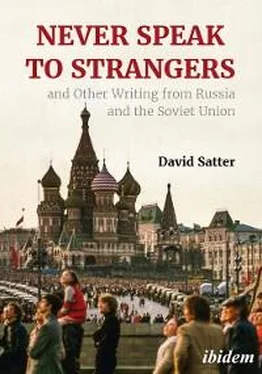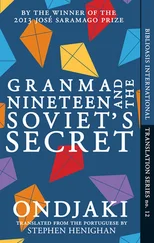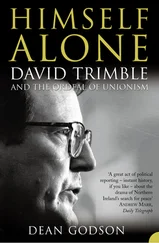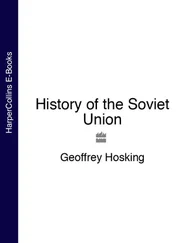In the summer, Murmansk becomes a city without children as virtually every child is packed off to pioneer camp in the south. Adults have 42-day holidays—twice what they would have in the south. People come to Murmansk in their twenties, spend 30 or more years of their lives there, and then leave the city for a more comfortable existence further south.
The state encourages this. Salaries are high in Murmansk and so pensions are also generous. The retirement age is 55 for men and 50 for women compared with 60 for men and 55 for women in the rest of the USSR.
Financial Times, Tuesday, May 1, 1979
David Satter examines the latest
U.S.-Soviet prisoner exchange
Moscow Yields to ‘Interference’
The largest exchange of prisoners ever arranged between the U.S. and the Soviet Union has confirmed that despite its protest, Moscow now accepts that foreign “interference” in Soviet internal affairs is an established fact.
East-West prisoner exchanges have, of course, occurred before, beginning with that in 1962 of Gary Powers, the U-2 spy pilot, for the Soviet agent Rudolf Abel. But last week’s exchange of two Soviet spies for five Soviet dissidents represented the first time that the Soviet Union has agreed to retrieve two of its spies by granting freedom, not to foreign-agents, but to five of its own citizens.
Despite the extra difficulty of discouraging dissent when prominent dissidents are freed from prison and sent to the West, last week’s events could also lead to further exchanges resulting in freedom for Anatoly Shcharansky and Dr. Yuri Orlov, two prominent members of the group which tried to monitor Soviet observance of the Helsinki accords.
When Mr. Leonid Zamyatin, a top Kremlin spokesman, was asked on Saturday, following Soviet-French talks, about the effect of the exchange on detente, he replied angrily that detente was a question of major issues and he had nothing to say to those who saw detente in such narrow terms.
However, it was almost certainly with an eye to the SALT 2 arms treaty and the effect of Soviet treatment of dissidents on Western public opinion, that plans were made for the release of the dissidents. Although they were traded for convicted spies, there was nothing in the charges against any of them to show they had ever had any connection with a foreign power.
The best known of them is Alexander Ginzburg, a veteran Soviet dissenter who has been in and out of labour camps since the 1950s, and was sentenced to eight years imprisonment in a special-regime labour camp last July after being convicted of anti-Soviet agitation and propaganda.
Mr. Ginzberg was, with Mr. Shcharansky and Dr. Orlov, a member of the now all but suppressed Helsinki monitoring group. But the principal charge against him was that he helped to distribute copies of “The Gulag Archipelago,” Alexander Solzhenitsyn’s history of the Soviet labour camp system.
The two Jewish dissidents who were freed, Mark Dymshits and Edward Kuznetsov, were also jailed on charges which had nothing to do with espionage. They were sentenced to death in 1970 for their part in an unsuccessful attempt to commandeer a light aircraft at Leningrad Airport and to fly it to Sweden from where they hoped to go to Israel.
The sentences were later reduced to 15 years’ imprisonment after widespread international protests. In 1971, Mr. Kuznetsov’s “Prison Diaries” were published in the West. Five other Jews involved directly or indirectly in what became known as the “Leningrad Affair,” were released from prison earlier this month during the visit to the Soviet Union of a delegation of U.S. Congressmen.
Another of those exchanged, Mr. Valentin Moroz, was a Ukrainian historian jailed in 1970 for anti-Soviet propaganda. After six years in prison, Mr. Moroz was moved to an institute of criminal psychiatry. When the move was announced, 20 U.S. Senators called on Mr. Leonid Brezhnev, the Soviet President, to allow Mr. Moroz to take up a post at Harvard University.
The last of the exchanged dissidents was Georgi Vins, leader of a faction which broke away from the officially sanctioned Baptist Church. He was jailed for inciting Soviet citizens to illegal actions. Just as he was about to be released last month, dissident sources said he had been sent back for a long prison term in Siberia after being held for seven weeks in a Moscow jail.
All five were convicted according to the normal operation of Soviet law and the exchange appears to mean that the long-standing subordination of the Soviet legal process to the political interests of the state can now be extended to include subordination to the desires and pressures of foreign states as well.
The five dissidents arrived in New York, amid intense publicity but the Soviet media carried no news of the return to Moscow of Valdik Enger and Rudolf Cheryayev, the two Soviet employees of the United Nations who were sentenced to 50 years each in New Jersey last October for receiving secret naval documents from a double agent.
It is believed that negotiations for the release of Mr. Shcharansky, and possibly Dr. Orlov, are taking place. It is speculated that a second exchange may be timed for a strategic moment to ease Senate ratification of the SALT 2 agreement.
Most observers believe that the release of other prominent dissidents will have a good effect on U.S.-Soviet relations but this remains only one of the factors that the Soviet authorities must bear in mind.
They may want good relations with the West, but releasing political prisoners to get it makes the consequences of dissent less frightening and affirms that the Soviet Union is not as resolute in rejecting attempts at outside interference in the legal process as it would like others to believe.
.
Financial Times, Monday, June 18, 1979
Tensions Between Systems Show at Summit
The first meeting between Mr. Leonid Brezhnev, the Soviet President, and President Carder may improve the atmosphere of Soviet-U.S. relations but, in this neutral and historic Viennese setting, there is ample evidence that interaction between the American and Soviet systems does not come without strain.
Tension derives from the fact that although the U.S. is a democracy and the Soviet Union is a dictatorship with a totalitarian structure, the Soviet leaders strive consistently to depict their country as a democracy, a feat more easily accomplished within the Soviet Union than in Vienna.
The possibility that the U.S. Senate may refuse to ratify SALT 2 has been an important concern at the summit and when Mr. Leonid Zamyatin, chief of international information for the Communist Party Central Committee, was asked at a press conference if the ratification question had been raised in the talks, he said that it had been and was agreed to be an internal matter for each country.
Mr. Zamyatin then added that Mr. Brezhnev expressed his hope and confidence that the Supreme Soviet, which he described as the Soviet legislature, would approve the treaty without amendments.
The Supreme Soviet is a purely formal, powerless body which votes unanimously to approve all policies of the Communist Party leadership and when Mr. Zamyatin’s reference to it was met with laughter in the hall, he said: “I ascribe this laughter to lack of knowledge of the Soviet structure.”
Obligations of protocol and great power equality demand that the two sides have the opportunity for an approximately equal number of press conferences, airport ceremonies and public appearances, but these activities, familiar to the Americans and to any broadly popular democratic politician, are a visible strain for the Soviet leadership.
Mr. Brezhnev has avoided making statements in public and his public appearances, either going into the talks with President Carter or coming out of them, have been as brief as possible.
Читать дальше












